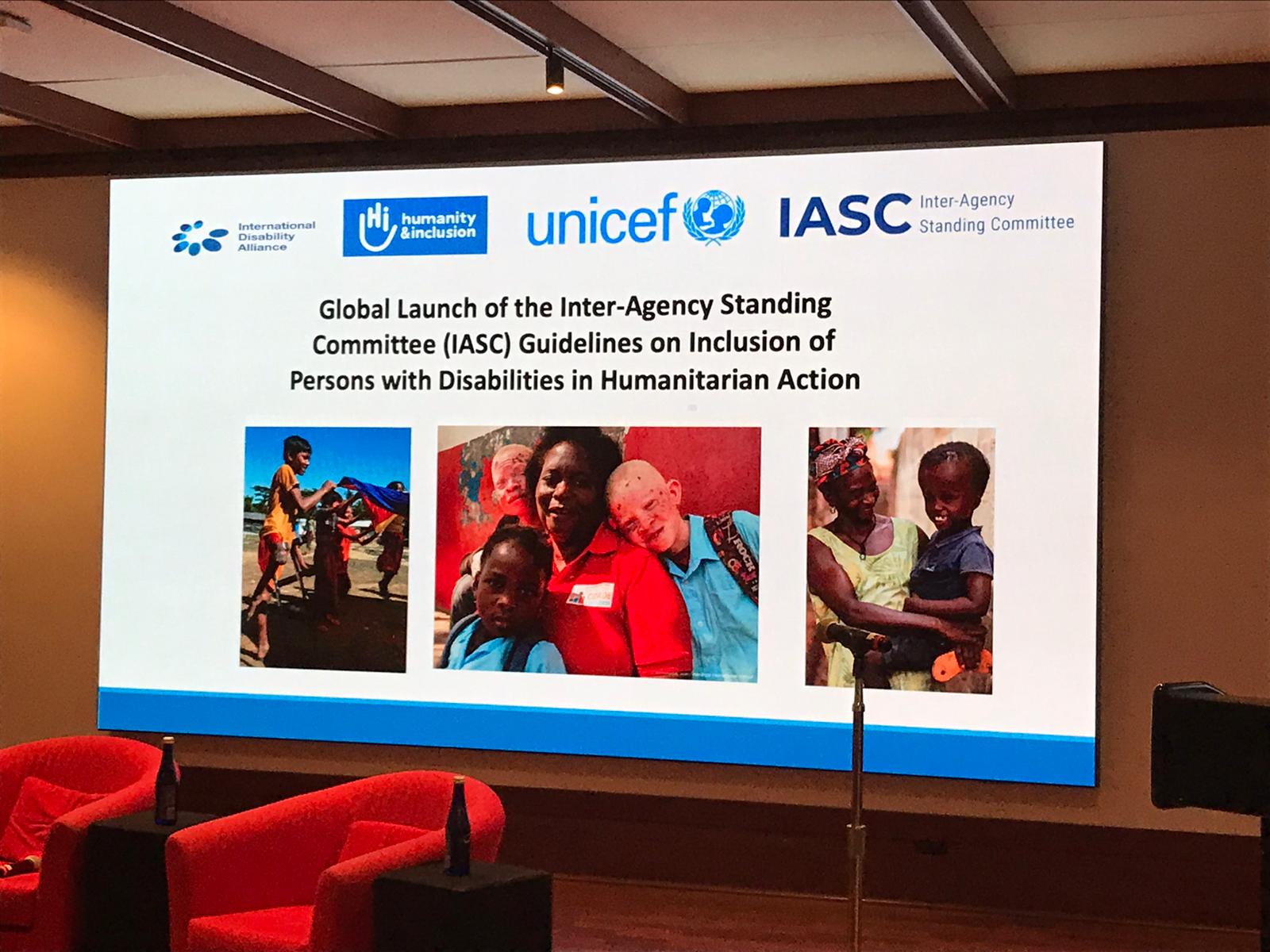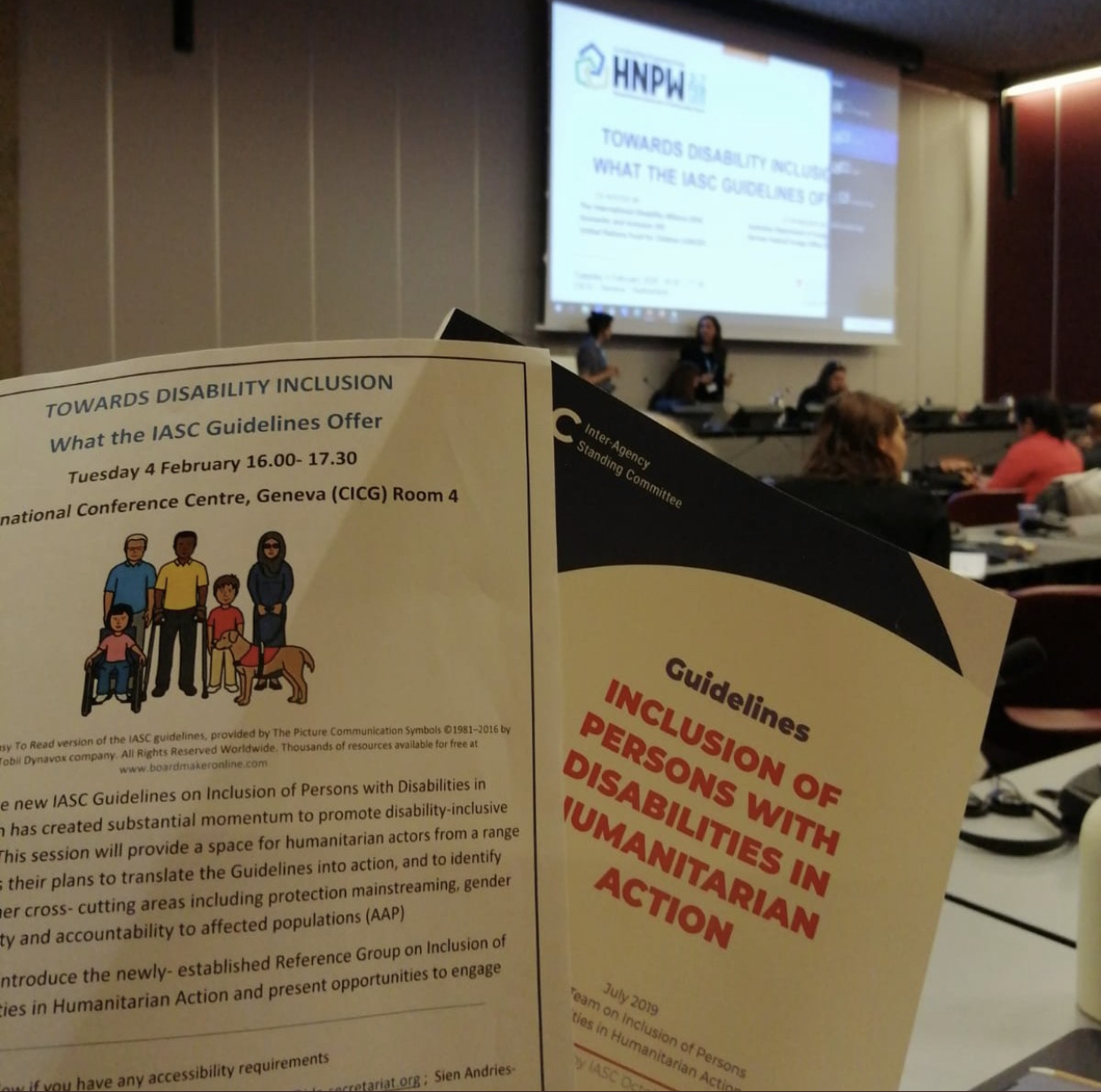
Global Guidelines & Coordination Mechanisms
Our goal: Support the finalisation and distribution of the global Inter-Agency Standing Committee (IASC) Guidelines on the Inclusion of Persons with Disabilities in Humanitarian Action and the incorporation of practical approaches for mainstreaming disabilities in global coordination mechanisms.
1.
Supporting the IASC task teams for the inclusion of persons with disabilities in humanitarian action in completing the Guidelines* (IASC Guidelines for the Inclusion of Persons with Disabilities in Humanitarian Action).
*This support has been implemented in cooperation with the International Disability Alliance (IDA), which together with HI and UNICEF presided as co-chair over the task team.
2.
Supporting the finalisation and dissemination of the IASC Guidelines, following the successful authorisation by the IASC secretariat.
3.
Incorporating the results of the applied accompanying research and German projects on capacity building in global coordination mechanisms and other global task forces.
Note on the IASC Guidelines

The idea of developing the Guidelines arose with the launch of the Charter on Inclusion of Persons with Disabilities in Humanitarian Action (Humanitarian Disability Charta) during the first World Humanitarian Summit in Istanbul in 2016.
The Guidelines are a milestone in terms of including persons with disabilities in all sectors and phases of humanitarian action. They are the result of a comprehensive and inclusive consultation process, in which more than 600 humanitarian actors and organisations of persons with disabilities from around the world participated.
The Guidelines convey useful information for humanitarian actors and other relevant stakeholders to better include the interests, needs and rights of persons with disabilities in the centre of humanitarian action.
As a next step the new reference group for the interests of persons with disabilities (Disability Reference Group) will develop useful implementation tools and resources in order to operationalise the IASC Guidelines.